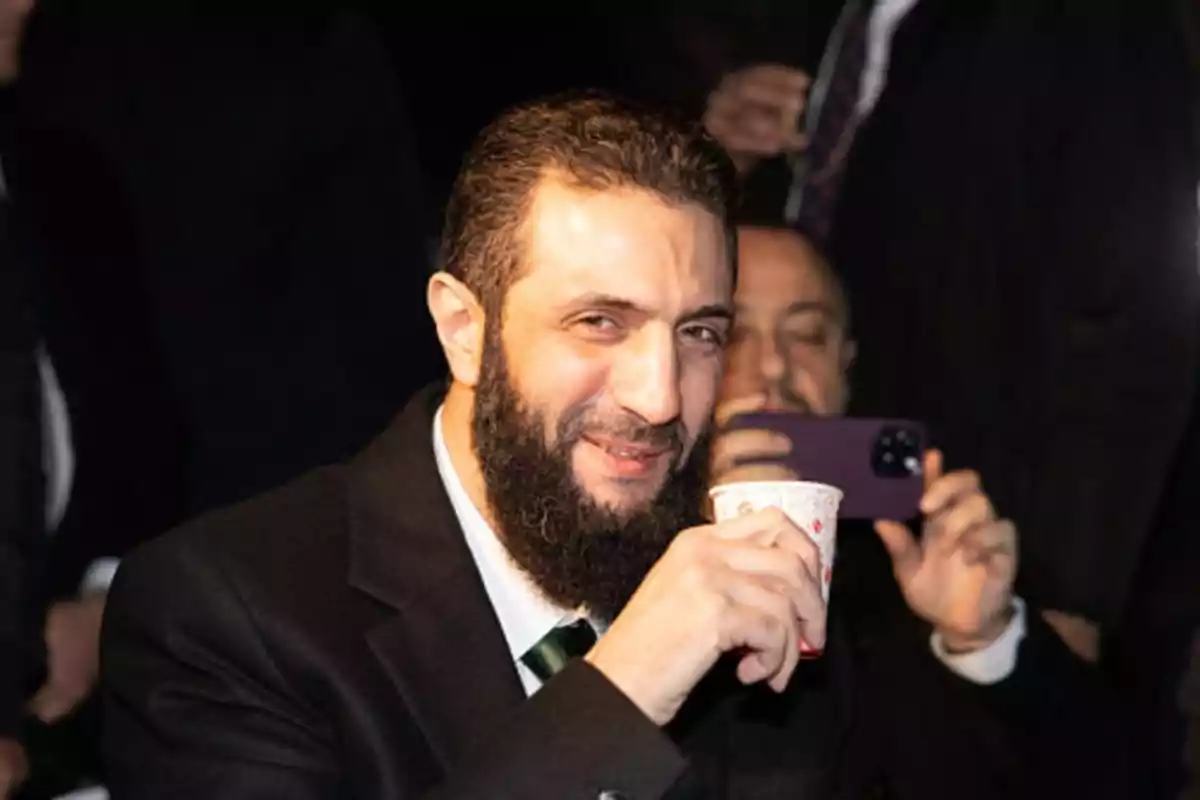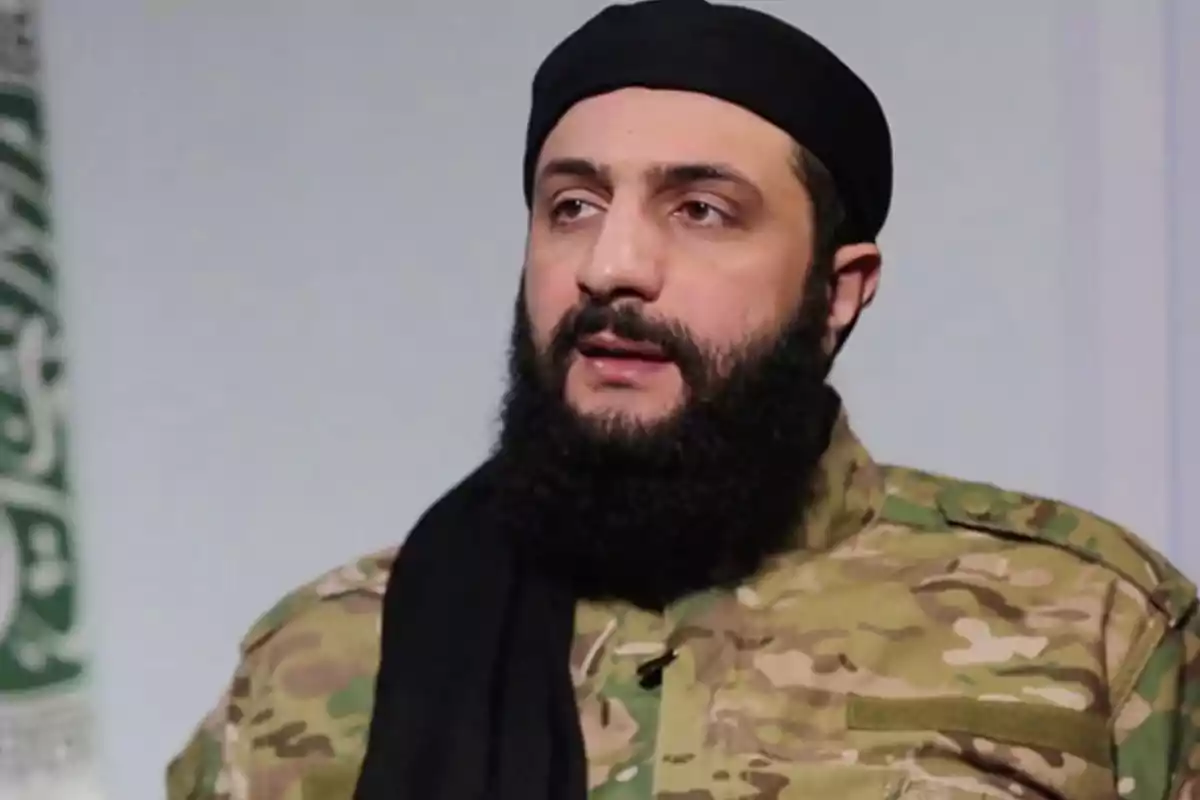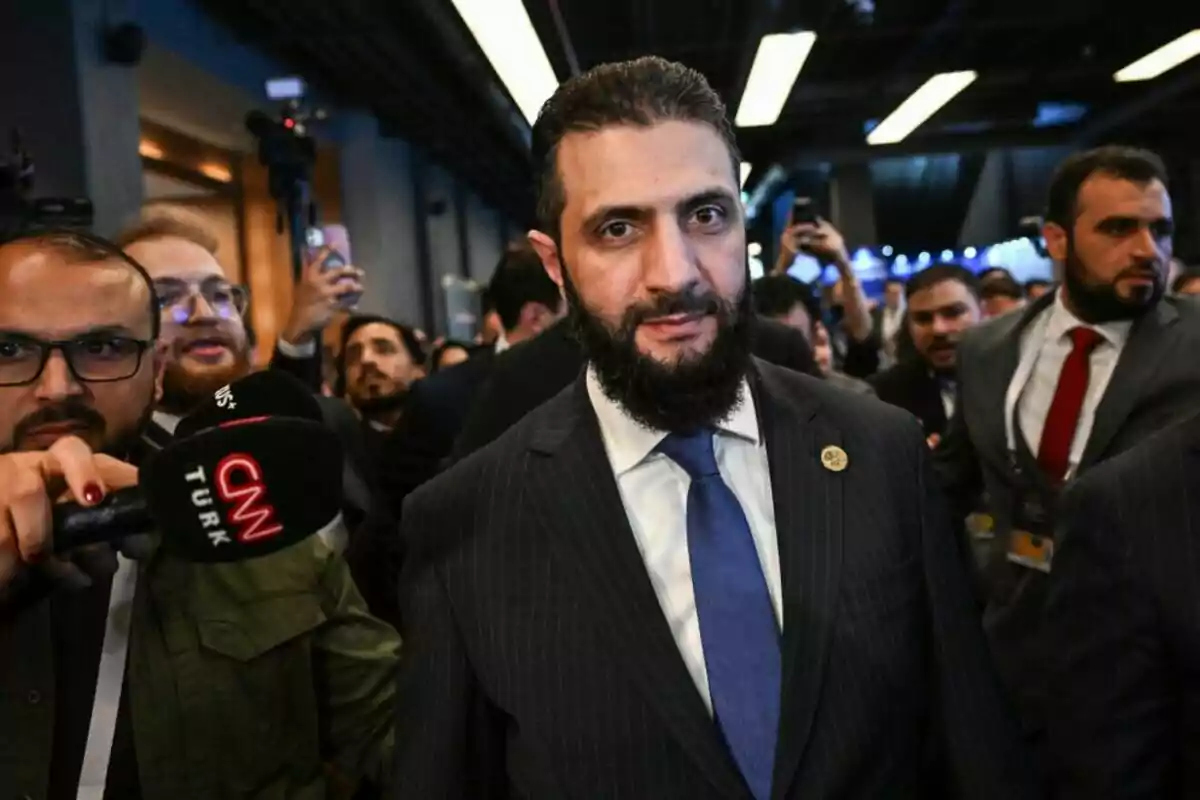
Syrian President Ahmed al-Sharaa stated that he is 'the greatest victim of the Islamic State.'
In the past, the current Syrian leader was linked to the Islamic terrorist group
The interim president of Syria, Ahmed al Sharaa, stated that he is "the greatest victim" of the Islamic State, a terrorist organization with which he was previously linked and from which he separated several years before the successful lightning offensive from Idlib province that, in December 2024, overthrew Bashar al Assad's regime.
Al Sharaa indicated during a meeting with the press that "thousands" of members of his group, Hayat Tahrir al Sham (HTS), died fighting in Syria against ISIS, which is responsible for atrocities and war crimes, and that continues to carry out terrorist attacks in the region. He also once again distanced himself from the jihadist group and emphasized that "all nationalist and Islamist ideologies have failed in the region."
The Syrian leader clarified that he also doesn't maintain ties with the Islamist organization Muslim Brotherhood and argued that his move to Iraq to confront U.S. troops during that country's invasion, as part of Al Qaeda in Iraq (AQI), the origin of the Islamic State, was aimed at fighting the "occupation" of Iraq.

"We went to Iraq to fight the U.S. occupation, against which all Iraqis were fighting, but the strange thing is that the Iraqis ended up being mujahideen and we, who did the same, were considered terrorists," he stated, according to the Kuwaiti newspaper An Nahar.
In this context, he insisted that "Syria is built on tolerance, not on revenge, whether internally or against the forces that interfered in Syrian affairs," and reiterated his rejection of any attempt at "partition" of the country.
"The solution is not military, but rather involves cooling the situation to prepare for the end (of the problem) through a mutual agreement and within the framework of the unity of Syrian territory," Al Sharaa indicated, adding that "all solutions, except for secession, can be discussed at the negotiating table."

Ahmed al Sharaa's past
Al Sharaa, born in 1982 in Saudi Arabia, joined Al Qaeda in Iraq (AQI), precursor to the Islamic State, after the 2003 U.S. intervention. In 2005 he was imprisoned at a U.S. base in Iraq, where he met Abu Bakr al Baghdadi, future leader of the jihadist group.
After his release, Al Baghdadi sent him to Syria to found the al Nusra Front, which gained prominence during the war that began in 2011. Subsequently, Al Golani rejected the calls of the self-proclaimed caliph of the Islamic State to pledge allegiance to him and distanced himself from the group, once again aligning with Al Qaeda, of which the al Nusra Front was its branch in Syria.
In 2016 he also severed ties with Al Qaeda, a year before his group adopted the name HTS, an umbrella organization of several armed Islamist factions that consolidated its control in Idlib province (northwest). From there, in December 2024, he led an offensive that overthrew Al Assad's weakened regime.
After the success of this offensive, he was appointed transitional president, a position from which he seeks to project a message of moderation to gain international support, with the aim of facilitating Syria's reconstruction efforts, which is mired in a severe crisis after nearly fourteen years of civil war.
More posts: